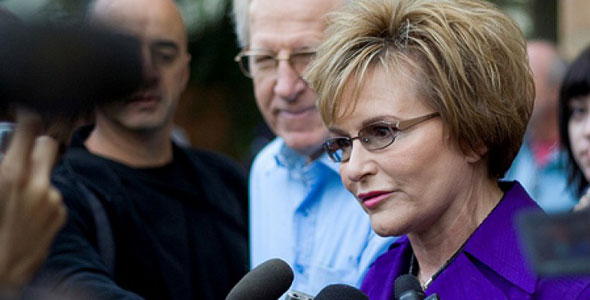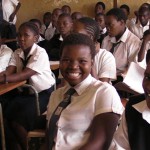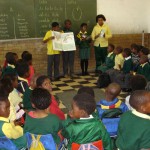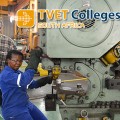Cape Town – Schools are “the bedrock” on which democracy is built, and which will determine whether democracy will work or not, Western Cape Premier Helen Zille said on Wednesday.
Addressing top pupils and parents as well as school principals during an awards ceremony at her official Leeuwenhof residence, Zille said there was no quick fix for improving education, but pointed out that as long as improvements were continually done in the education system, things would progress.
Turning to her province’s matric results, Zille hailed what she called the “exceptional improvement” in performance by matrics from the lowest 75% of income levels.
Overall, 82.8% of matrics in the Western Cape passed the 2012 National Senior Certificate exams.
In 2012, 20 of 30 under-performing schools in the province improved their results to above 60%, while a third of the additional 15 000 pupils that wrote the matric exams in 2012 were from the Western Cape.
Zille said a 25% increase in the number of candidates passing matric in the province and the increase of over 1 000 more bachelors passes had taken place against a 30% increase in population in the province between 2001 and 2012.
Zille said there was no better fertile ground for grooming successful individuals than a nurturing school environment.
Also addressing the ceremony, Education MEC Donald Grant said since 2009, the province had improved on all measures for the poorest 75% of schools, with the average pass rate climbing from 56.9% (7 798 candidates passing) in that year to 70.9% in 2012 (9 797 passes).
The number of bachelors passes had increased by 76% between 2009 and 2012, while the average pass rate for maths in the poorest 75% of schools, had increased by 12.2% and that of physical science by 26.6% across the same period.
“It is not about lowering standards to achieve the same level of education, but to improve outcomes to meet them,” he said.
He named a number of poorer schools which had taken the lead in this initiative – including the Centre of Science and Technology (Cosat) in Khayelitsha, Rylands High in Gatesville, Spine Road in Mitchells Plain and Imizamo Yethu Secondary in Thembalethu near George.
Cosat was awarded R15 000 in a special ministerial award for having achieved a 100% pass rate for mathematics.
Prizes of R15 000 each, to be used to buy teaching materials, were also made to 10 schools for notching up the biggest improvement in matric pass rates, with Morester Sekondere Skool in Oudtshoorn topping the list – with an additional 95 matric passes.
Morester principal Jacobus Francis said the school had developed an action plan to raise their matric pass rate, which increased from 82.6% in 2011 to 89% in 2012.
The plan included winter and spring schools, and Saturday schools as well as extra lessons provided by satellite from Stellenbosch University for pupils taking maths, science and accounting.
He said as a principal, he had to help inspire and motivate teachers and had to also ensure that quality teaching was undertaken at the school by monitoring classes, holding workshops and meetings with parents.
“You must integrate them all, motivate them and mobilise them around the goals you set for the year – that is quality education,” said Francis, who added that the school’s next target was to achieve a 90% pass rate.
A further 10 schools were also awarded R15 000 for the greatest increase in the number of passes qualifying to study for a bachelor’s degree, with George High topping the list with 38 such extra passes.
Awards were also given to schools for their improvement in specific subjects – maths, science, accounting, English, Afrikaans and Xhosa.
Each of the top 20 schools in the province received R20 000 to buy teaching and learning support material.
Herschel Girls’ School topped the list with 100% bachelors passes and an 84% pass rate in maths, followed by the Diocesan College (Bishops), Rondebosch Boys’ High School, Westerford High and Springfield Convent.
Awards with R5 000 in cash prizes to each candidate were also presented to top pupils for various categories, with a special ministerial award presented to Anita Engelbrecht of Hoerskool Belville.
Anita, who has a physical disability and is in a wheelchair, came in the top 20 for each subject in her school.
On the whole, the province’s top matric pupils are optimistic about the future in South Africa.
“As a student, I would say the future of South Africa is great, seeing the great potential we have as learners … you can see that the percentages are increasing in maths and science year after year, which means that the future is quite bright for the country,” said Songezo Ceki, who achieved four matric distinctions and was awarded for excellence in Xhosa as a home language.
Songezo, who comes from Kayamandi Secondary School in Stellenbosch, plans to become a medical researcher and plans to study medicine this year.
Aldu Duminy, from Hoerskool Langenhoven in Riversale is also optimistic about the future of the country.
“I believe it’s full of opportunities that are just waiting for the youth to fulfil,” said Aldu, who got nine distinctions and plans to become a politician. He will study actuarial science this year.
“I would like to be Minister of Finance in the future, but that is only a future dream,” he said.
Sameenah Hashim, from Livingstone High in Cape Town, is also hopeful about the country’s future.
“I think we are, as a country, becoming a lot more aware of what is needed in South Africa, especially when it comes to those who are less fortunate.
“There are many people that are helping out, schools organising welfare organisations and things such as that,” said Sameenah, who plans to study medicine this year
The province’s top matric, Nita Wiegman from Hermanus High, notched up nine distinctions and will study medicine at the Stellenbosch University this year. – SAnews.gov.za








